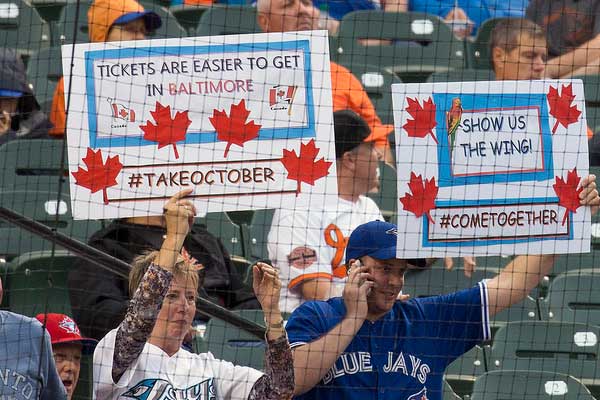
Should employees be allowed to watch big matches on the job?
Published: October 30, 2015
Blue Jays fever may be over, but an important question remains. The next time a team pulls a nation together in front of screens and even cellphones, should bosses let their staff watch games during work hours or stand firm?
U of T News spoke to Professor Alan Saks of the department of management at University of Toronto Scarborough and the Centre for Industrial Relations and Human Resources. Saks’s research includes organizational socialization and employee engagement.
What should employers do when important sport matches are scheduled during office hours?
You have to realize first that we are talking about special events that are quite rare. The Blue Jays were in the playoffs for the first time in 22 years. When an event is very important to many employees, as with the Blue Jays games, then you have to consider how you can best accommodate your employees.
Why? What good does this do for the business?
Most employers will be thinking of the potential effect on performance and lost productivity. However, if you don't allow employees to watch the game, then there will probably be consequences for productivity. Employees who are not allowed to watch the game will surely spend most of the day thinking about it and keeping track of what is happening. That's if they come to work.
Are sick calls likely?
Many will feel they have no choice but to call in sick. Absent employees and distracted employees hurt productivity. What's more, not allowing employees to watch the game will have a negative effect on employee attitudes and this will probably linger for some time. Allowing employees to watch the game at home or at work, on the other hand, will be perceived very positively.
Is there evidence that letting employees watch big games during work hours affects their satisfaction and engagement?
When the Vancouver Canucks were playing the Boston Bruins in Game 7 of the 2011 Stanley Cup finals, the CEO of Coast Capital Savings Credit Union closed branches early so that employees could go home and watch the game. Those working at call centres were provided with large-screen televisions and pizza. After the announcement, the CEO received hundreds of emails from thrilled employees including one that said: “I love you, CEO.” Or consider the teacher who was in the news recently. She had tickets for one of the Blue Jays games. The principal let her go. Her response? “I have the best principal in the world.” These reactions are explained by social exchange theory, which says that employees who are treated favourably will feel obliged to reciprocate by responding positively and returning the favourable treatment in some manner. Employers should see these events as an opportunity.
Is there a downside to this generosity?
You have to be careful to choose those events that are really important to your employees. These are rare and special events. You don't want it to become an expectation!



